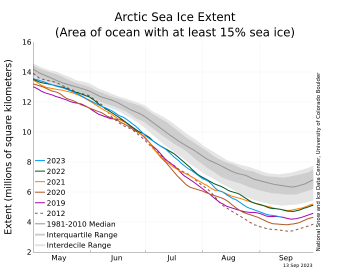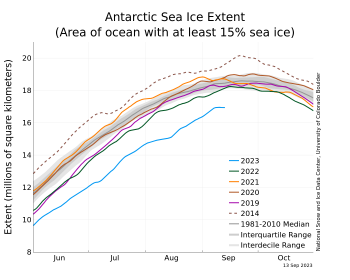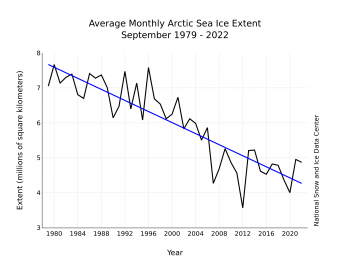Both Arctic and Antarctic sea ice appear to be heading toward their respective seasonal limits, reaching the lowest extent at the end of summer in the north, and the highest extent as winter ends in the south. In the Antarctic, high variability typically characterizes the period around the maximum, but at present the sea ice extent is more than 1 million square kilometers (386,000 square miles) below the previous record low maximum set in 1986.
In the Arctic, this summer is the 5th lowest minimum in the satellite record, bested only by 2007, 2012, 2016 and 2020.

In the Antarctic, this year’s decline in sea ice for the winter maximum is a record for the satellite era.

Early in October NSIDC will publish the monthly averages for sea ice extent time series compared to previous Septembers. The monthly average SIE metric is the most useful for revealing long term trends since it is smoothed out for short term changes due to wind, current and ice breakup and clumping. Here is the SIE time series compiled in October, 2022.
